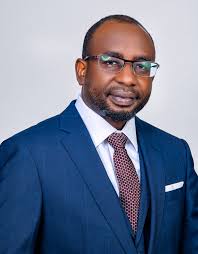The Federal Government has hinted of its plans to establish research centres for emerging technologies such as Artificial Intelligence (AI), Internet of Things (IoT), Blockchain and others in the six geopolitical zones in the country with a view to creating technological capacity and skills needed to drive the digital economy in the years ahead.
The Director-General of the National Information Technology Development Agency (NITDA), Mr Kashifu Inuwa, gave this hint on Tuesday in his keynote address during the opening session of the IoT West African Conference held in Lagos.
The industry expert, who was represented at the forum by the NITDA’s Director of Planning and Strategy, Aristole Onumo, explained the move aligned with one of the focus areas of the agency, namely IoT, AI, Blockchain Technology, Unmanned Aerial Vehicles (UAV), additive manufacturing, and robotics, aimed at building robust technology research ecosystem in the country.
He explained: “We are establishing a special purpose vehicle that is going to look into these key areas and also establish research centres across the six geo-political zones of Nigerian that will be targeting these key areas of emerging technologies.
“We want to encourage development and also have innovation sandboxes where we can support and encourage those who have ideas to come up with use cases and through that, we can help them to stand, help them to create businesses, and also take them to the market”, the Director-General added.
On other initiatives being worked on by the agency, Inuwa said that NITDA was also playing a key role in building talents by supporting the 3 Million Technical Talent (3MTT) programme of the Federal Government to ensure that by 2027, three million Nigerians would have been technologically trained and empowered for contributions to the nation’s digital economy.
According to him, though some of the beneficiaries of the programme may leave the country for green pastures, this will also impact positively on Nigeria’s talent exports and by implication boost the foreign exchange (FX) inflows to the country through improved remittances.






